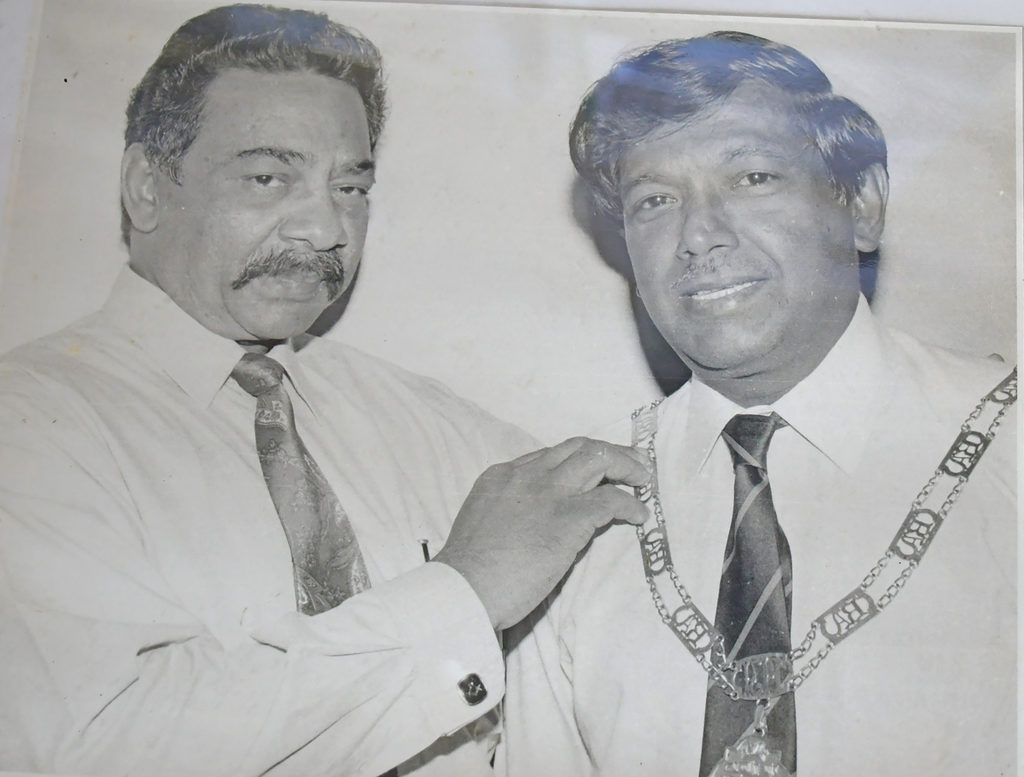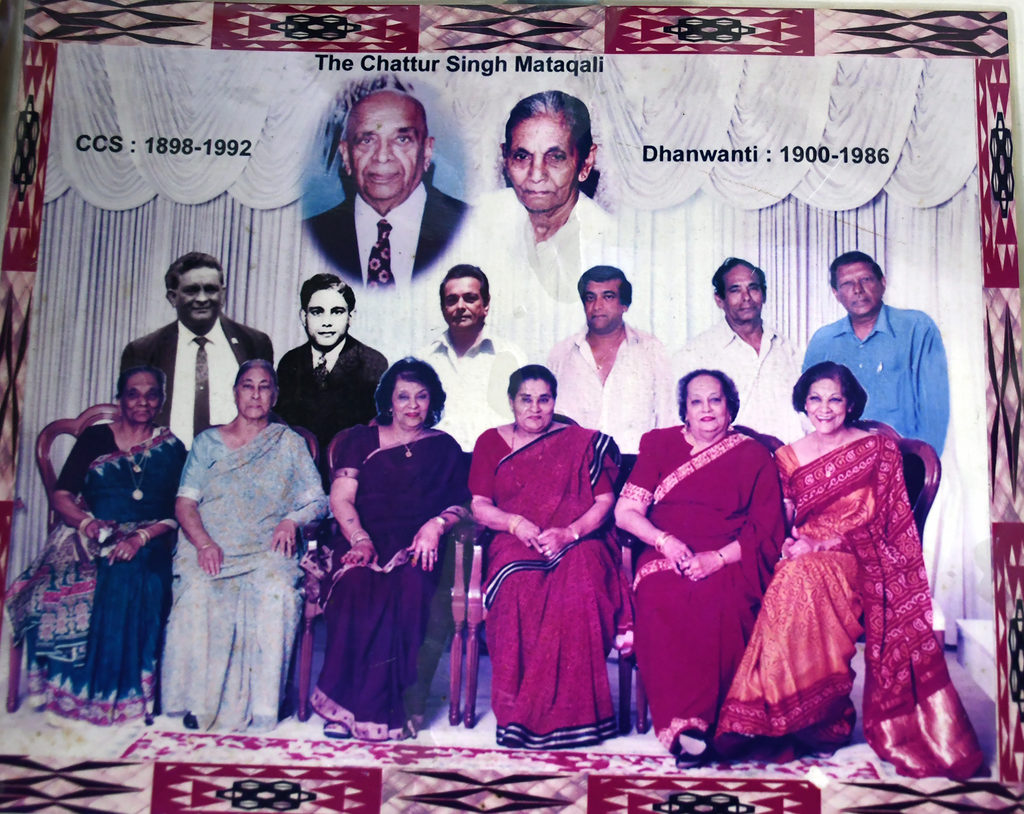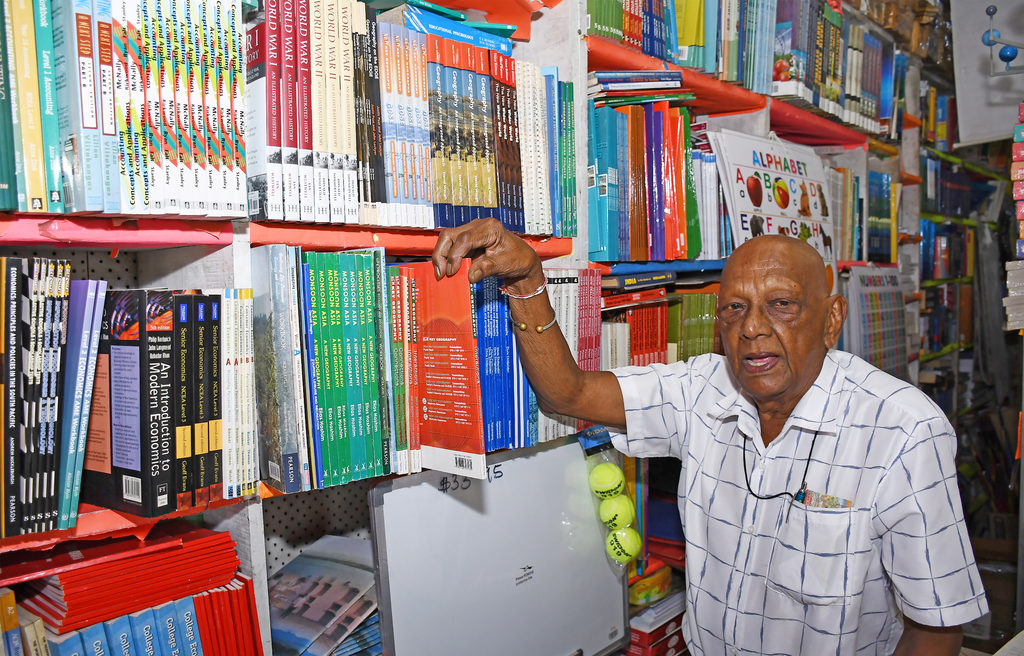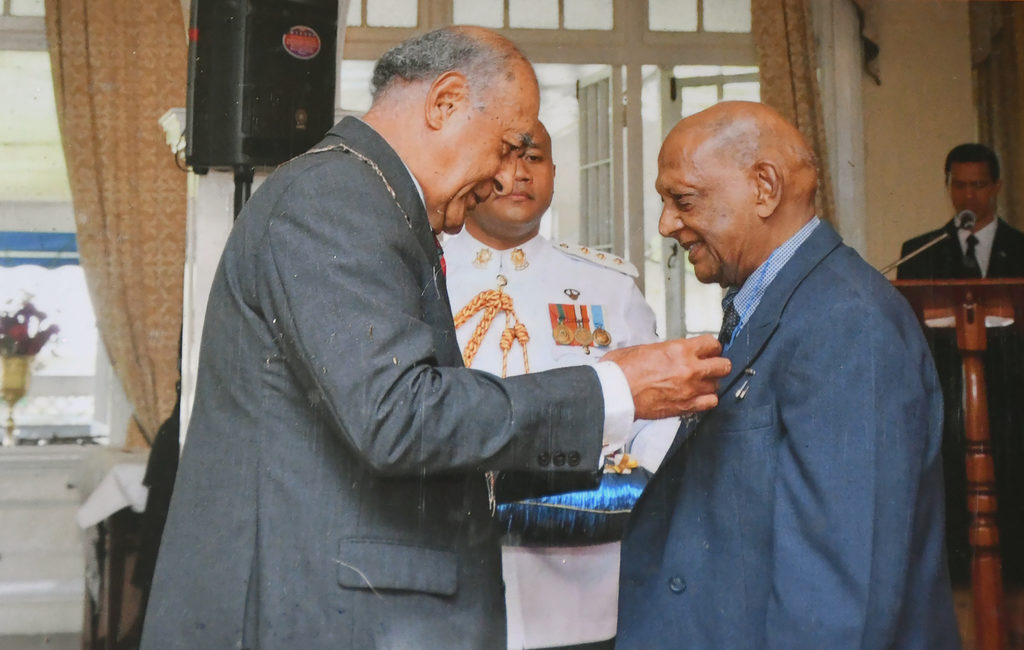BEING an ardent reader at an early age sparked Arun Singh’s insatiable hunger for knowledge and motivated him to establish the Premier Book Centre.
Mr Singh recalls that while still at school, his brother, an official of Fiji Football Association, met RC Bali, the treasurer of Fiji FA.
“Every afternoon my brother used to go to his shop and he would say, ‘come with me, you can read books’. So, we’d sit and read,” Mr Singh said.
That quaint bookstore is located on Ba’s Ganga St.
Upon entering the store, the interior resembles a time capsule filled with academic books, novels, poetry books and story books galore.
Outside passersby even seemed unaware of its existence, let alone know of its rich history and the numerous schools to which it has supplied books over the years.
Now 82 years old, Mr Singh reflects on how he started the Premier bookstore on August 15, 1964, at the age of 21.
Mr Singh was first employed at the Ba Book Centre from 1960 to 1963 after leaving school.
“I was educated at AKP (Arya Kanya Pathshala), Methodist Mission in Namosau and then Xavier College,” he said.
“In 1960, I left school and started working because my father had gone to London for an operation and there was nobody to look after my younger sister and my mother.
“At Ba Book Centre my pay was one pound per week which is two dollars.”
Every afternoon, after finishing off from work, Mr Singh would buy a string of salala fish for a shilling (about 10 cents).
“Life was good back then,” he smiled.
Mr Singh married in 1969 and started running this business with his wife.
“She was my support. I have two daughters, one is in Canada and the other is in Sydney, and I have three grandsons.”
In the initial stages of the business, Mr Singh acquired books from a Methodist bookshop in Suva, next to the Reserve Bank building.
“It was called Vidal Library and it was a Catholic bookshop, and they were using all these books printed overseas.
“None of the subject books for arithmetic, algebra and geometry were printed in Fiji.”
Mr Singh said he would initially receive 20 to 50 books.
“Now, I have started getting thousands, like Things Fall Apart that is Form 6 literature, and then there’s River Between, that is Form 7 literature. Then we have Julius Caesar and Hamlet, they are still in use.”
In 1990, Mr went to the Curriculum Development Unit (CDU). There was a lady in charge – Mrs Racule.
“She called all the HODs and told them to write the list of books or content they wanted,” Mr Singh said.
He would then travel to New Zealand, Australia, the United Kingdom and Singapore looking for books. They would be screened and the suitable ones chosen for distribution to schools.
“They used to recommend the books, and if you go back to the 90s until 2012, you will see that the CDU used to send a list of books for schools, and on the list, they would show what was available at the Premier Book Centre in Ba.
“All the high schools started buying from me, so we started with academic books. Then the schools wanted storybooks.
“Our specialties are storybooks, novels and encyclopaedias now.”
Mr Singh also pushed for Hindi education in schools.
“In 2022, I went to the late Vinod Patel and asked to start Hindi in kindergarten. He said, ‘talk to the teacher’, but I told him to give his permission, and I would give 34 Hindi books free of charge.”
Mr Singh said the store’s bulk store in Varadoli was filled with boxes of books.
“Every second or third month, I ship books. I just got a consignment from New Zealand and Australia last week; the India one is coming next week.
“Every shipment that comes from India is more than $F20,000, but because it comes in US dollars, $US10,000 is about $F25,000. Now $US1 has gone up to $F3.20, before it was $F2.50.”
Mr Singh said social media has had a big impact on reading; it has shortened the average attention span of a child, stifling comprehension and reading skills.
“Nowadays, everybody goes for mobile phones, even children. They’re getting spoiled. Nobody wants to read now.
“We go to high schools, they want books that classes three and four read. They want books with big letters because hardly anybody knows their ABC.”
Mr Singh said the automatic promotion policy within schools has also impacted the standard of education.
“I hope that they reintroduce it next year. You cannot do automatic promotions. It’s either you pass and then you go ahead, otherwise you go back.
“You go to any house, you’ll see small kids with mobile phones. They do not speak Hindi, they do not speak iTaukei, only English.”
Despite his old age, Mr Singh remains enthusiastic about his love for reading and passing this down to his grandchildren.
“My daughters have been saying for me to retire, but I tell them simply, I will retire when I leave this earth.
“That is why I keep on going. I wake up at 8 O’clock and I come to the shop at 9.
“Reading to me is important. If you want knowledge, you have got to read, that is how I got the knowledge.”
Arun Chandra Singh (right) receives the mayoral chain from the outgoing mayor of Ba late Daniel Elisha in 1993 Picture: SUPPLIED

Arun Chandra Singh (standing right in blue) in his family photo. Picture: SUPPLIED

Premier Book Centre managing director Arun Chandra Singh shows some of the books at his shop in Ba Town. Picture: BALJEET SINGH



